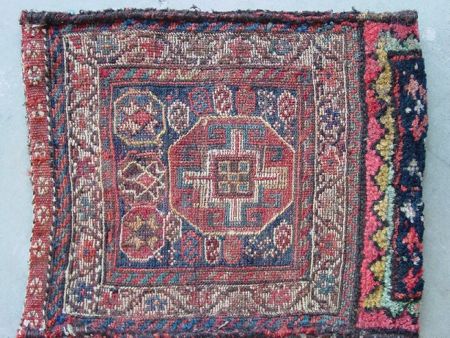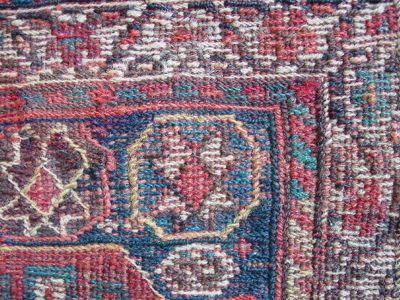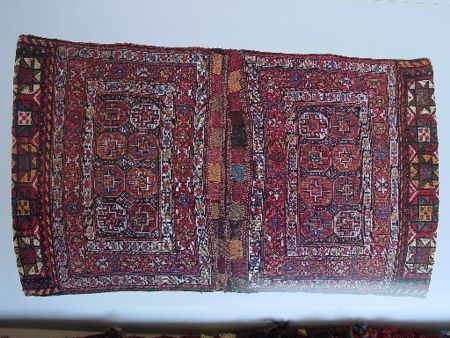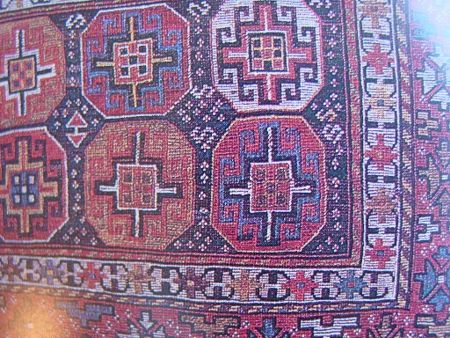
In Salon 84, I said this about the piece:
We shall now head into un-chanteh-d territory. The above bag is 12" wide x 15" tall. It has a countered soumak face with diagonal sumak outlining, a pile woven strip along the bottom and a plain woven back with weft substitution rosettes and bands of small weft float circles. The pile is symmetrical, with no warp depression, with a density of 5h x 7v knots for a staggering 35 knots per square inch! The pile design is a dark blue panel with X motifs having "birds head" ends, surrounded by a reciprocal red and green/yellow triangle border.
The Memling gul design and the meandering vine and flower border appear in Khamseh region NW Persian bags, according to John Wertime, in Sumak Bags of Northwest Persia and Transcaucasia. However, the pile panel at the bottom only shows up in a bag vaguely described as Northwest Persia with a possible relation to Rashvand or Mafi weavings in Qazvin province, Lak or Kurdish, plate 136. There are two ground wefts between the rows of sumak in this bag, too, another indicator of the Kurdish Rashvand or Mafi weavers of Qazvin. Wertime refers us to plate 40 of the Jenny Housego book, Tribal Rugs, for a sumak khorjin with pile reinforcement attributed to the Kurds of Qazvin. The rosettes at the top of the bag face, and in two rows on the back, are often an indicator of weavings from the Veramin area, populated by Lurs, Afshars, Shahsavan, Kurds and others.
Here is a photo showing the Varamin rosettes on the back:

This next photo shows the "spaced weft" sumak that Tanavoli says is common to all Varamin flatweaves:

The photo below shows plate 29 of Tanavoli's book Rustic & Tribal Weaves from Varamin:

It is described as a Lors of Bakhtiari khorjin, 3'3" x 5'5". When Tanavoli says Lors of Bakhtiari, he means Lors who migrated from the Bakhtiari area to the Varamin area.
This photo shows a close up of the field of Memling Guls:

Notice the "dice" or, as Opie calls them, "domino's" in the center of the Memling Guls, in both weavings. You also will see "S" figures in a horizontal configuration in both weavings, but with the "S" inside a cartouche in my little chanteh. The little diamonds in the field are the same in both weavings, too.
Other than the more formal meandering vine-and-flower border of the chanteh, there are more than just passing similarities.
Do you think they may both be Varamin Lors of Bakhtiari weavings? Has the mystery been solved?
RIP Robert Stack